-
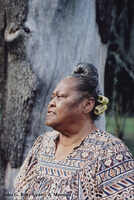
-
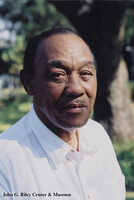
Earl Carter, Suwannee County; "The reason integration happened anyway was the fact that [Hurricane] Dora come through. Dora messed up the high school building over there. They needed money to build a new school. One of the stipulations was that they could get the money to build if they integrated the schools. They had to go to full integration to get that money to build the schools. They consented to do so. After a couple of years they went from token integration to full integration. I went over as a teacher, social studies teacher and I did coaching in the afternoon over there. Football. After being there awhile and working over as a coach and so forth I went over to the high school. After we go over to the high school on full integration they put me in, they asked me if I wanted to be, they’d looked, been observing me and they thought I would make a good dean of students. That was an individual who help control, that knew the black kids and that could help keep them in line. That's what it was. They figured that they need a black disciplinarian because there were black kids that didn't want a white person beating on 'em and I guess it was likewise with some of the white kids, so we had two. They would have to accept punishment of some sort or they would have to be suspended. Some of them, rather than accept any punishment would take suspension. The thing about it is, we worked up a pretty good relationship. Things were not rosy all the time. There were ups and downs because it was something new. When you bring people together that's never been together on a regular basis and all at once together, a lot of things had to be worked out. We proceeded to try to work some of those things out as we would go along. The big thing that the black kids were concerned about is that they were not including them in some of the clubs that was going on. We had some black kids that were not functioning in the clubs. [M]ost of the clubs, though, were fully integrated. There were a few that was not. They had some tokenism in them. There were some blacks there. As they began to know each other, the better they got along."
-

Chestine Epps Curry, Suwannee County; "[T]he black went to separate schools, not equal schools, not equally as they should be, as the white school in Suwannee County. They were thankful to be able to learn how to read and write because they were once, wouldn't 'llow the blacks to be part, to go to school to read and write in the United States. The black school were poorly equipped. As they say, some had pumps. It was a spring. The children had to go to the spring and get water. They didn't bring 'em wood, so sometimes the boys would have to go out and cut wood and bring it back. We had a heater. This was at Smithville, that's the name of the school. Smithville. Then the black schools, as I say, was poorly heated. Sometimes, as I say they had school in churches. I remember the school was so poorly built and had plenty ventilation 'til we went in the church. Sometimes we'd have school in the churches."
-

James Cooper, Suwannee County;“I think the good thing was that we knew that we were coing to have equal access to whatever was available. Good teachers, whatever you want to call 'em. Good supplies. Good facilities. Had that now. The other part, the downside of it is that we began to lose control of our black kids. Certain things you had to be cautious about doing. Where it wasn't a issue when we were all black. I'll do this and I'll see your mama later and I'll tell her why I did what I did. Now you get in another setting, you got to treat everybody the same, so if you going to be cautious with whites, you had to be cautious with blacks, if you want to be equal. The same things that we used to say to 'em, we could no longer say in that setting, because we would be deemed as [unfair] when they go back home and tell their parents about what's going on."
-
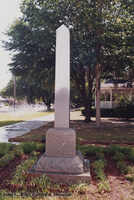
-
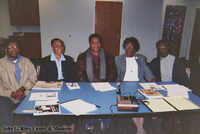
-
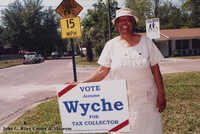
-
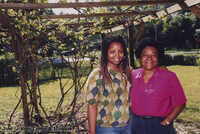
-

-











